 Living out, both as individuals and as a gathered-church, the Sermon of the Mount, should appear as a threat to the social and cultural status quo and to those invested in maintaining this status quo. As such, Sermon on the Mount living cannot help but challenge the way things are. Interestingly, in the Sermon on the Mount there is no mention of ranting on public platforms as the means to challenge the powers, no mention of protesting or boycotting, no calls for platforms to leverage any form of power, no voice nor stones–only light and salt (i.e., living in community, that is as church); rather we are not to practice our righteousness hypocritically for the applause and/or affirmation of others (and you don't get invited to be an A-list Christian speaker without that applause), not to judge, and are to do to others how you want to be treated (no matter how you are treated by them). Living out the Sermon on the Mount is meant for church, a social group whose allegiance is to the risen Lord Jesus, not to be attempted solo, for apart from the gospel at work in the flock of God, encouraging one another and loving one another, such living is impossible. The Sermon on the Mount is not possible for the State to legislate by law apart from granting power to some to enforce by forms of punishment and violence. Surprisingly we seem to be doing the opposite. We love the opposite, because we like power, whether the power of the crowd (i.e., the mob) or the power of platformed applause. Sermon on the Mount living is the opposite of power. And, we are impatient. Sermon on the Mount living demands patience. And, we trust our leverage and platforms. Sermon on the Mount living calls for extraordinary, faithful trust in God's ability to work in the affairs of humankind, and thus to be often hidden and away from the applause of others. It is no wonder that the first two book volumes produced by the church were on "Patience" (i.e., Tertullian and Cyprian). No one, especially Jesus, said this Sermon on the Mount living is easy. This is why the gate is narrow to this life, the life imagined by the Beatitudes. We, as church and, especially, our individual elite-celebrity Christians, seek to use the wide and broad way (judging, law and thus State enforced punishment and retaliation, encouraging hatred and others to judge, and non-forgiveness, and the building of power and leverage (the complete opposite of the Sermon on the Mount), which leads to destruction. And just in case we didn't get that the Sermon on the Mount is actually God's word to his church, we are to build on the Rock of this Word and not the sands shifting power. God, forgive me for not living out the Sermon on the Mount and for being all too willing to call the church and other Christians to live out the wide and broad way to get our way in this world. *Check out as a part of this thread, Matthew 6:1-18 as a reflection on the Beatitudes >> Click Here
0 Comments
The goal of redemptive history is the cosmic restoration of creation. This is the story of the Bible. This is the church’s story. This should be your church's story. God has determined to use a redeemed people to herald this message. The ekklesia of Jesus, the gathered-church, composed of redeemed and restored people, living out the gospel, illustrating this cosmic restoration through its treasonous worship of the risen Jesus, the Lord over all other claims to the throne, its missional behavior to its neighbors, and , particularly, through the fellowship of restored human relationships among strangers and unequals. The gathered-church of the Lamb of God is unlike any and all other rebellions and resistance movements: church is not (ever) aligned with a government or party or state or king in order to violently overthrow or by means of State-authority and any form of violence to maintain; church is never (ever) aligned with the spilling of blood through strength or cunning to change or maintain the status quo of an unredeemed social structure or cultural state of affairs; and, where privileged to participate, church does not count on the ballot-box to overthrow power or maintain a particular person or party in power. The church uses a table of fellowship over food, broken bread, and a raised cup of allegiance to the risen King of kings and Lord of lords, now seated at the right hand of God in the heavenly places. This has been and is God’s way of, not saving the State or some preferred demographic or cultural value, but demonstrating that all of history is moving toward His ultimate conclusion of a restored creation. How does God reveal and accomplish this purpose of history? Little and grand tables, scattered throughout time and place, some well noticed and many hidden in the back alleys and among the margins–this has been where God does his rewriting of corrupted history and the deconstructing of the powers of humankind. This is church-story. Not just the best story. But the true story of history. This is the story you and I are invited into; and, the gathered-church is the place God restores all things. Not the battlefield. Not the ballot box. But at tables of strangers and unequals.
For some reason, I decided to translate and soak in Galatians 2:20 this morning. I have given it a different spin (than most of the translations and how it is all too often preached); yet, the rendering is both grammatically justifiable and faithful to the biblical theology behind “in flesh” (ἐν σαρκί) and “in faith” (ἐν πίστει). Below, the first is, more or less, my word for word translation (with some help in brackets), which is far more fun to read out loud (to really hear Paul’s audible impression), which would have been the way the first hearers heard (they heard, not read) it. Below my wooden translation, I offer a more English interpretive translation for you.
My interpretive translation:
For why I have taken the last line in v. 20 as I do, check out what Paul already wrote in his introduction to Galatians: “. . . and the Lord Jesus Christ, who gave himself for our sins [cf. Gal 2:20c] to deliver us from the present evil age . . .” (1:3-4). Furthermore, the simple two words "But now" (δὲ νῦν) imply the inauguration of the new age (i.e., the kingdom of God) has come in the appearance of Jesus. Of course many times “now” simply means “now.” Paul, however, often uses "but now" to indicate the inauguration of the new age that has arrived in the coming, cross, and resurrection of Jesus Christ and not simply as a conjunction (cf. Gal 3:21; Rom 3:21; 6:22; 7:6; 8:1; Eph 2:13; Col 1:22; cf. Rom 3:26; 11:5, cf. “in the now time,” ἐν τῷ νῦν καιρῷ). Thus, Paul is helping the reader to hear that these words within the tension between this present evil age and the age to come inaugurated in Christ. To be crucified with Christ is to be delivered from this "present evil age" and, thus a participant in the new age, now. Seems to me this verse, Gal 2:20, calls us to live a life based on the new age hushered in by the Spirit (i.e., the new age of the kingdom) that was inaugurated in Christ’s faithful action of the cross (the reason Paul says, “I have been crucified with Christ,” 2:20a, which centers on the cross); rather than living by the passions and systems of the flesh that make up the way the world around us works (cf. the fruit of the flesh vs. the fruit of the Spirit later in Gal 5:16-24). This text reminds us, as Christians and as church, we are wholly different. Very much like Jesus’ words in John 17 that we are in the world, not of the world. This goes with the church-problem that Paul seems to be addressing, that is the nature of the gathered-church. Paul illustrates this by his previous rebuke of Peter (cf. Gal 2:11ff.), who, for whatever reason, had separated himself from Gentile believers at the table (probably a reference to the Lord's Supper of the gathered-church). Additionally, Gal 2:20 is not far from the implications of Paul's words in Ephesians 2:11-22: note the centrality of the cross (i.e., crucifixion as the means by which the wall (i.e., separation) is broken down between believing Jew and believing Gentile, making the two (literally, the both) one new humanity (in Christ), which is the household of God, being built up as a holy temple (i.e., the gathered-church). Therefore remember that at one time you Gentiles in the flesh, called “the uncircumcision” by what is called the circumcision, which is made in the flesh by hands— remember that you were at that time separated from Christ, alienated from the commonwealth of Israel and strangers to the covenants of promise, having no hope and without God in the world. But now in Christ Jesus you who once were far off have been brought near by the blood of Christ. For he himself is our peace, who has made us both one and has broken down in his flesh the dividing wall of hostility by abolishing the law of commandments expressed in ordinances, that he might create in himself one new man in place of the two, so making peace, and might reconcile us both to God in one body through the cross, thereby killing the hostility. And he came and preached peace to you who were far off and peace to those who were near. For through him we both have access in one Spirit to the Father. So then you are no longer strangers and aliens, but you are fellow citizens with the saints and members of the household of God, built on the foundation of the apostles and prophets, Christ Jesus himself being the cornerstone, in whom the whole structure, being joined together, grows into a holy temple in the Lord. In him you also are being built together into a dwelling place for God by the Spirit. To be crucified with Christ is to be caught up with the Spirit's working in forming the church. In particular, intentionally, a church, to fulfill the principle of being "crucified with Christ" ought to reflect the age of the Spirit wherein "There is neither Jew nor Greek, there is neither slave nor free, there is no male and female, for you are all one in Christ Jesus" (Gal 3:28; cf. Col 3:10-11, "new self" is actually "new man").
Until recently, I have always read (rather poorly I will confess) the first few verses of Romans 12 very individualistically. This was how I read them and, for the most part, how these verses were preached and taught to me. Typically, as I have, these verses are taken as words to individual Christians to present their bodies as a living sacrifice, thus read (and heard as), "You, Christian, present your body as a living sacrifice . . ." And, as well, these as verses are disenchurched (yes, I invented a word) from Romans 12 as a whole and are read (heard) apart from their most likely venue of context, the gathered-church . . .
Furthermore, Paul's instruction in the following verses all the way through the rest of the chapter (vv. 3–21) and, really, to the end of the Letter (chapters 13-16), are all about church, specifically the gathered-church. So . . . let's read Romans 12:1–2 as church . . . the church is not to be conformed to this world, but be transformed . . . The translators who translate "your mind" in v. 2b (by the renewal of your mind) don't help interpretive matters, for there is no "your" in Paul's original text, which allows a different read from the text (". . . but by the renewing of perception, imagination, thinking . . .") with the church as a gathered group sitting in dinning rooms throughout Rome, gathered as church for instruction, worship, and fellowship. Of course individuals need to apply this, but the context is the church, so it is a call to the gathered-church, together: true mark's of the gathered-church are forthcoming in Romans 12:9-21. A far better read here. 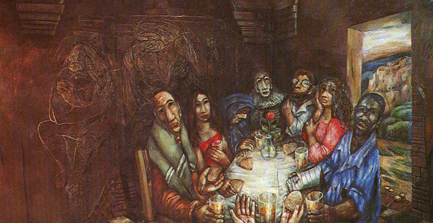 Imagine, a beggar now preaching the gospel and discipling a small group of believers meeting in a doctor’s home. There is plenty of room in the Father’s house. Imagine, a former male temple prostitute now the appointed host of a gathered-church in a small, shanty shelter of a home. There is plenty of room in the Father’s house. Imagine a young women who used to offer herself at that very table to the men who use to recline for their symposia dinners now offering prayers and thanksgiving saying, “Who the Son sets free, oh is free indeed, I’m a child of God, in my Father’s house, there’s a place for me.” Imagine a household slave reclining at a table he would never have been allowed to eat from lifting up a loaf of bread, breaking it and saying, “Jesus instructed is, ‘This is my body, broken for you,’ He has made us one body in Christ.” Imagine, a merchant male head of a household, who has thrown out two deformed born infants and an unwanted girl infant now sitting next to his daughter and son and his slave’s children all at the table, an elder teaching a rag tag of forgotten in his home, saying, “Jesus instructed us, ‘This is the cup of the new covenant, My blood shed for you for the forgiveness of sins.’” In my Father’s house there is a place for me, a child of God, yes I am. In 1 Peter 5, the apostle of Jesus turns his attention to church leaders–no doubt to the male head of households who now occupy the leadership roles and shepherding of the house churches in Pontus, Galatia, Cappadocia, Asia, and Bithynia (1:1). The apostle had been speaking of the church under persecution, suffering, and the object of outsider insults (2:11-4:19). The stress has been on the church’s (i.e., the individual believers) conduct outside of the gathered-church (2:12). Peter addressed slaves who had found themselves a part of a gathered-church, fully welcome to recline at the table, who had to return to unbelieving masters, subject to all the horrors of enslavement in an empire-space where they would not even be considered equal to a beast of burden. He spoke to believing wives, equal at the table of the gathered-church, who had to return to unbelieving husbands and subject to all the social-cultural space of women in the Greco-Roman world (3:1–6). Of course, Peter put the hammer down on husbands to be different than the social and cultural definition and expectations for husbands, now honoring their wives (3:7).
Imagine Greco-Roman male head of households who were the very heart of enforcing the social and cultural imagination of the Caesar-cult and the empire, now charged to act like Christ, to honor their wives, treat their slaves as human-beings, equal in all ways, and to treasure all born to them, the deformed, the girls, the boys. Imagine that these men, once the center of the Roman universe were so deconstructed by the good news of the forgiveness of sins and then reconstructed (by and through faith) to die for their family, to suffer for Christ, to make disciples–that is the good news for the community, the challenge to the empire, the stand against Caesar. The household gathered-church, God's way of changing the world. Imagine.
In 1 Peter 2:9 there are two words we must re-translate (a better nuance based on their actual meanings) in order to get a better sense of Peter’s syntax and meaning, which will offer a fresh and perhaps more accurate (and certainly a more powerful) reading of this wonderful set of defining metaphors of the church. First, I take exaggellō (proclaim) to mean more literally, “message out.” Peter uses a different word than the typical “proclaim” (kēryssō) used elsewhere in the NT from which we get the concept of “preaching.” Exaggellō is made from two words ek (out) and aggellō (I message). The verb, aggellō is from the noun, messenger (aggelos, where we also get "angel" as in the angels were God’s messengers—you get that). So, Peter picks an atypical word so we are allowed to rethink “proclaim” a bit and take his choice a bit more targeted to the idea of “messenger” getting the message “out.” Second, the word “that” (hopōs) that follows the wonderful list of church metaphors is also specific as a conjunction (more nuanced than the English "that" implies). The English “that” here gives the idea of goal . . . i.e., it is the goal or result of being “chosen race, a royal priesthood, a holy nation, a people for his own possession” to proclaim (which in English implies speaking, content, words). The word, hopōs, however, that Peter uses here is more nuanced and gives the sense of “in this manner.” So, here is a fresh reading of this most wonderful verse: "So that in this manner—being God’s own possession as a chosen race, a royal priesthood, a holy nation—you, the gathered-church, are to message the excellencies of him who called you out of darkness into his marvelous light." So in this way, the gathered-church (fulfilling the roles as chosen race, royal priesthood, holy mixed ethnic group) is the message. Literally, as the cliche puts it, the church IS the message.
Now, this is powerful reading of the text and underscores the significance and importance of the presence of the gathered-church in a community. Furthermore, this reading makes more sense of what is to follow regarding suffering as church, living in the Empire as a church (a people), and as a church made up of slaves, masters, wives, and husbands (1 Peter 2:11–17), which all ends with the church as God's apologetic in the world (3:17). |
AuthorChip M. Anderson, advocate for biblical social action; pastor of an urban church plant in the Hill neighborhood of New Haven, CT; husband, father, author, former Greek & NT professor; and, 19 years involved with social action. Archives
February 2024
Categories
All
|
Pages |
More Pages |
|
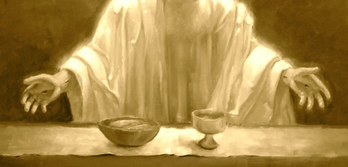
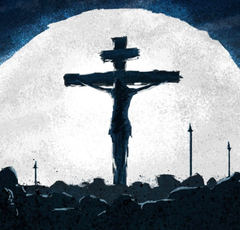
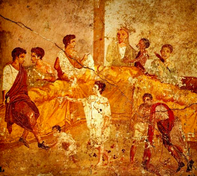
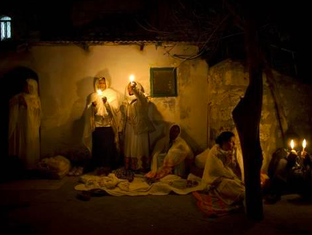
 RSS Feed
RSS Feed